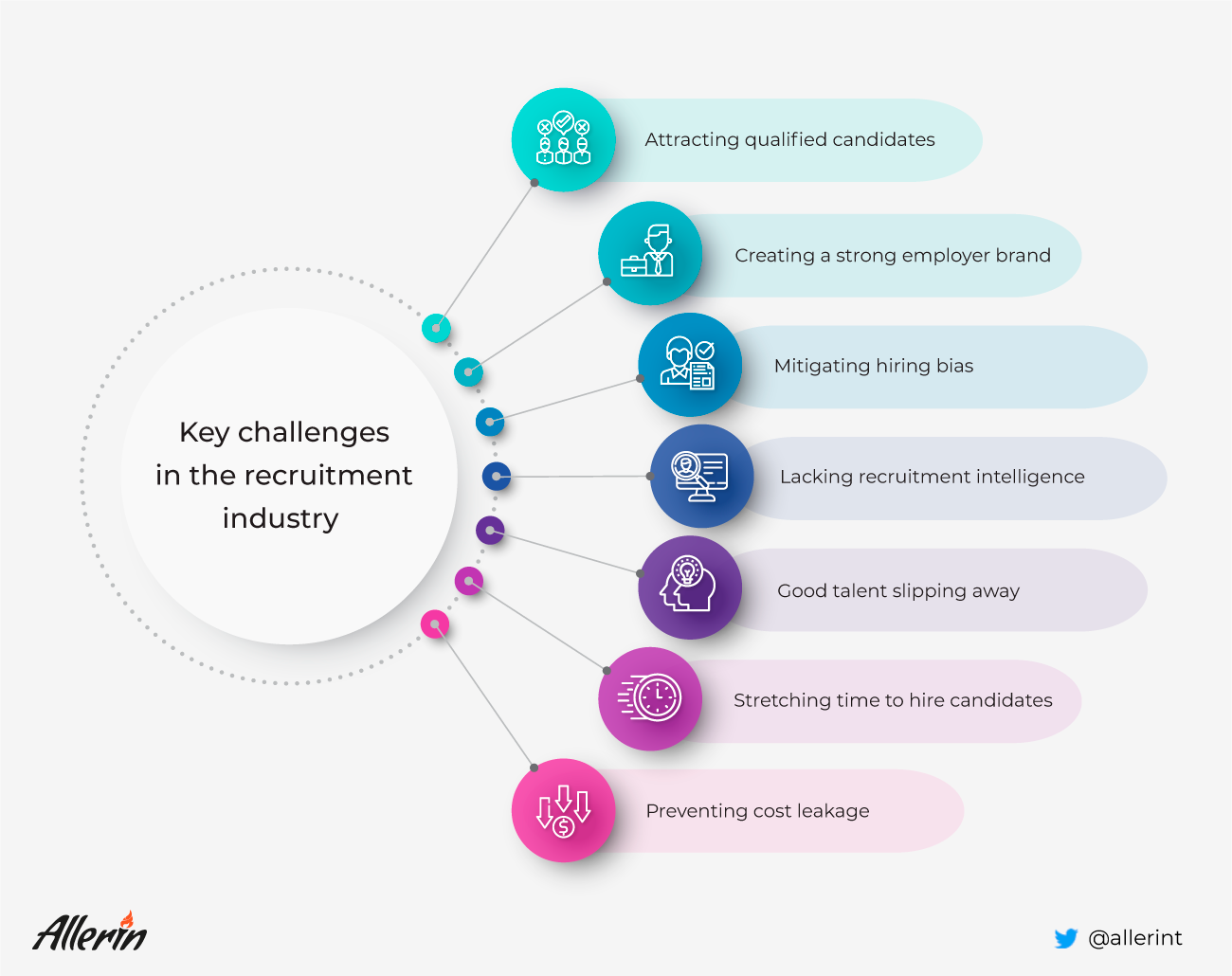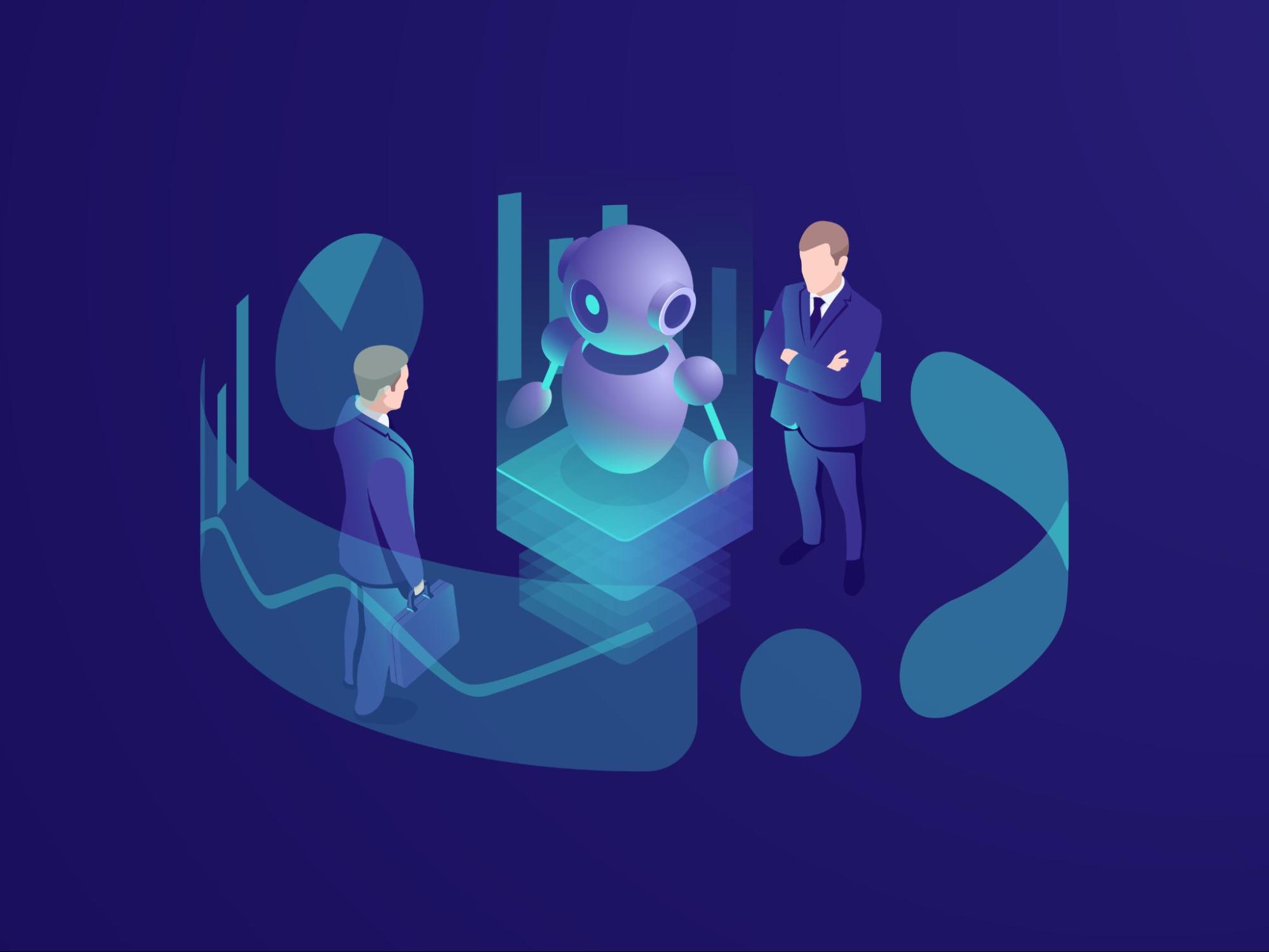AI and Emerging Technologies Reshaping the Remote Hiring Management

Not that long ago, the concepts of AI, ML, and blockchain felt like some notion that was so far off in the future, we couldn’t even begin to understand it. Fast-forward just a few years and emerging technologies have impacted almost every aspect of how we do business. This includes the recruitment process. Truth is, emerging technologies have reshaped the remote hiring management process entirely.
In fact, when it comes to remote work, it’s even more challenging to go through the hiring process and management without some help from technology.
Remote work has grown 91% over the last decade, especially since the pandemic. Hiring people has become easier because companies get a wider pool of candidates. But, it’s also become harder because now companies need to evaluate hundreds of applicants using a variety of criteria.
Do you remember the days when every resume was all about the experience? Recruiters hardly ever checked the other points in applications. It was straightforward. The candidates who had the most years of experience in their resumes were instantly placed at the top of the stack.
Today, the hiring process is much different from before. It’s transformed into a thorough analysis of skills above anything else. The hiring market is very competitive, and years of experience are no longer a prerequisite for landing a great job - skills are. Companies are fighting tooth and nail to attract the most skilled employees, and they aren’t only looking at experience.
Did you know that today, 58% of recruiters feel like the biggest hiring challenge is the lack of qualified candidates?
By using new technologies like artificial intelligence and machine learning, they can do thorough research on the candidates and find the gems in the crowd. If you want to gain a competitive edge and streamline the remote hiring process for your company, the emerging technologies we’ll discuss here are the answer.

The top 3 technologies that reshaped remote hiring management are:
-
Blockchain
-
Artificial intelligence
-
Machine learning
Let’s dig in, then!
Blockchain
One of the technologies we discussed is blockchain and oh, how great it’s been for hiring management! This technology has contributed a lot to the industry transformation. Moonpay, the leading company offering such solutions for payments can teach you all you need to know about how the blockchain technology works. Blockchain is a safe and private way to store data and manage transactions. It’s transformed how we do transactions throughout industries.
But, how does this affect the hiring industry?
There are 2 ways we’ll mention in this post.
Data control
Blockchain allows people to have immense control over their data and decide which recruiters/employees they’ll share their data with. However, due to recent legislations like the GDPR outlining personal data, using blockchain can be tricky. To make the most use of it in the recruitment process, it’s smart to use a token payroll provider. Toku is the first global solution for tax compliance in addition to token compensation. Their services include employment and tax compliance, token-based payroll, etc.
Blockchain has transformed data management and control storage processes. The use of blockchain in the recruitment industry will expand the negotiable space for recruiters and clients, give everyone a piece of mind, and offer more control to both parties.
Transaction process
In addition to more data control, blockchain has been transforming the transaction processes as well. Thanks to this technology, we now have an infrastructure that can gather and process commands in real time.
What does this mean?
With blockchain, recruiters can offer same-day payments. It’s a competitive offer that can do a lot in luring in new talent. Employees are more expectant than ever, and blockchain gives recruiters a chance to add something highly desirable to their benefits package.
Artificial intelligence
Automation has become a great part of our business processes, but what about artificial intelligence? Automation streamlines office processes, but AI makes leaps in helping companies find the best talent. It’s been booming recently - and for good reasons.
Here are some of the ways AI is used in hiring:
-
Candidate sourcing
-
Candidate screening
-
Talent assessment
-
Interviews
-
Personalized offers and onboarding experience

Now the main question arises - how can you benefit from using artificial intelligence in the remote hiring management process? Let’s take a look.
Maximized recruitment efficiency
Recruitment comes in many stages. You need to reach out to the talent pool, attract them to apply, and then check every application one by one to figure out who is the best fit. On average, recruiters spend around 30 hours a week on tasks including:
-
Creating job offers and posting job openings
-
Screening resumes
-
Conducting background checks
-
Scheduling interviews and interviewing applicants
-
Coordinating with others in the hiring team
This list goes on and on but with AI, the time spent on these tasks is much shorter. A good AI-based solution will sort through hundreds of applications - even thousands if necessary, and do so in a very short time. What would take recruiters days would take AI up to a few hours.
By doing this, AI helps HR teams to reduce the amount of time they spend doing administrative work.
Reduced/no recruitment bias
No matter how many steps you take to optimize recruitment, bias is always a risk when a human is evaluating candidates. Human biases often creep into the process without recruiters noticing. It can influence decisions in a bad way, a way that doesn’t align with your company’s values.
Today, 79% of HR professionals confirm that unconscious bias exists in hiring decisions. What are the results?
This results in bad hires and can negatively affect your company’s reputation. If you are looking to build a diverse workforce and give everyone the same chance, you can use AI. Since there’s no human factor in AI’s decisions, it counteracts these biases and eliminates subjectivity altogether.
AI will screen all candidates objectively without relying on factors like race, age, and gender.
Better candidate experience
A recruitment and onboarding process that is messy and inefficient can be a major turn-off for qualified job applicants. The first impressions of your new employees are very important, especially if you aim to survive the great resignation. Many of the job applicants, especially the great ones, will have other options aside from your company. Poor recruitment experience can be what pushes them away from your company before they even start working for you.
AI-enabled recruitment tools can solve this problem. This technology will streamline the application process, as well as the onboarding process. It can collect data to offer a more personalized experience, avoid long waiting periods, and have all the information employees need when they need it.

Improved quality of hires
Employees are the basis of a successful business. If you want to avoid bad hires, AI can help. Based on data, analytics, and analysis of each candidate, AI can provide insights that help managers make better hiring decisions.
Machine learning
Another emerging technology that reshapes remote hiring is machine learning or ML. This is a form of AI that uses computer algorithms to make predictions and draw informed connections by checking a lot of data at high speed.
Machine learning solutions include robotic process automation, natural language processing, and data mining. These don’t require advanced programming skills. As a result, machine learning and AI today are making workplaces more efficient, automating time-consuming tasks, and more.
How do hiring managers use ML in recruitment today?
The act of collection and analysis of candidate data is made easy thanks to ML. Talent teams hardly have the time - or the resources to give every candidate careful consideration. ML streamlines the manual, repetitive operations that take place in the recruitment process. Here is how it’s used:
-
Job advertising
-
Searching for talent via marketing channels
-
Resume screening
-
Candidate assessment
-
Candidate engagement

How do AI and ML recruiting differ?
On one hand, we have AI which allows machines to solve complex problems and make decisions. On the other, we have ML which makes machines more ’intelligent’ by feeding them examples and data.
Are you ready to reshape YOUR remote hiring?
The ways we hire and manage remote talent have changed a lot of thanks to cutting-edge technologies like AI, ML, and blockchain. These are game-changers that can make the hiring process unbiased, personalized, and far more efficient.
The result? A better candidate experience, improve quality of hires, and less stressed hiring teams.
Have you been using these technologies to hire remotely? If you haven’t, it’s time to embrace the tech revolution!